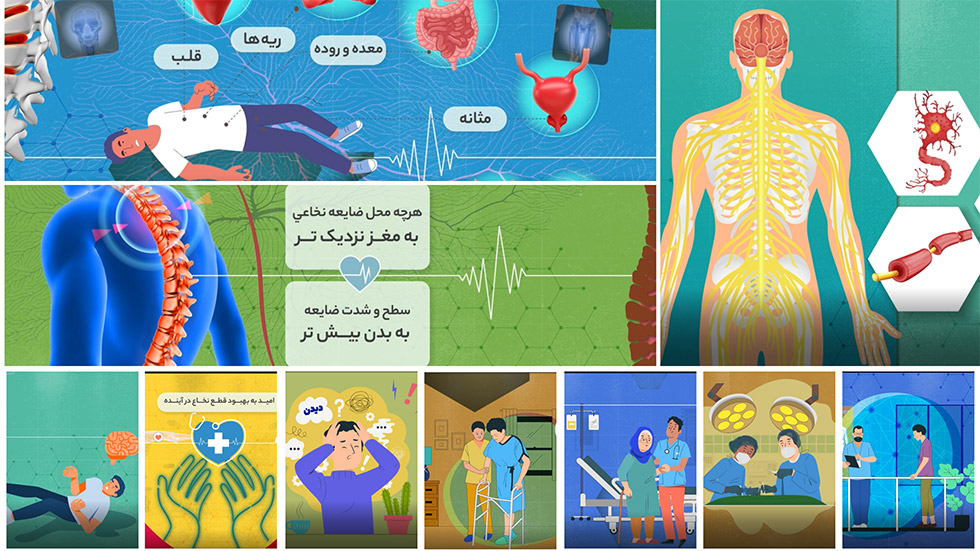
25 January 2024, Tehran, Islamic Republic of Iran – A pioneering self-care training package has been launched to empower people with cerebrospinal injuries by giving them tools and resources to foster independence and reduce reliance on caregivers or health professionals. The Iranian Ministry of Health and Medical Education devised the resource with partners including WHO, Tehran University of Medical Sciences, the State Welfare Organization of Iran and various nongovernmental organizations (NGOs).
Globally, an alarming 250 000 to 500 000 cerebrospinal injuries attributed to road traffic accidents, falls and violence occur each year. Cerebrospinal injuries can result in severe and lasting effects, including physical disabilities, cognitive impairments and emotional/psychological challenges. The self-care training package thus responds to a critical need.
People with cerebrospinal injuries often grapple with social isolation and barriers to their full participation in society. This initiative recognizes the importance of social care and support to help affected individuals reintegrate into their communities, take part in meaningful activities and maintain vital social connections. In doing so, the initiative champions inclusivity and equality in society.
The package has 3 parts: “Understanding and managing cerebrospinal injuries” gives users essential knowledge about these injuries, their associated risk factors, and effective strategies to overcome challenges, all with a focus on promoting individual independence. The second section, “Assistive technology integration”, introduces users to assistive technology and provides guidance on its effective use to enhance overall quality of life. The final section on “Communication skills development” empowers users with tools to navigate challenges and strengthen their ability to connect with others.
“This collaboration exemplifies our commitment to enhance the lives of individuals with cerebrospinal injuries by fostering independence, and to create a more inclusive society,” said Dr Syed Jaffar Hussain, WHO Representative and Head of Mission to the Islamic Republic of Iran. “WHO is proud to have joined forces to develop this groundbreaking resource that will empower vulnerable individuals with cerebrospinal injuries, especially in the most deprived areas of the country.”








